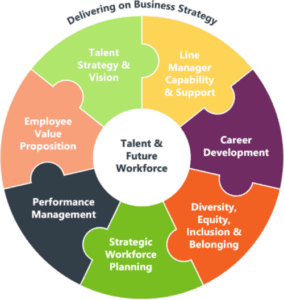
The infrastructure industry has achieved significant safety improvements through a systematic approach. This point of view explores the parallels between safety risk management and Diversity, Equity, Inclusion, and Belonging (DEIB) in the sector. It suggests that the systemic approach applied to safety can also be beneficial in fostering effective DEIB cultures, emphasising the need for leadership commitment, behavioral change, data transparency, and consistent reinforcement. The article encourages coordinated efforts in addressing both DEIB and safety challenges in the infrastructure sector.
Reading time: 3 minutes
To improve safety for workers in the infrastructure sector, in 1995 the UK introduced Reporting of Injuries, Disease & Dangerous Occurrence Regulations (RIDDOR) legislation. Approaching 30 years later, at Q5 we think there are some important learnings to be taken from Infrastructure’s approach to safety as the sector engages with one of the next big workplace challenges – enabling Diversity, Equity, Inclusion and Belonging (DEIB).
Infrastructure is a place where risk management is paramount. While there is a landscape of legislation designed to protect workers and companies from safety risk, rules can only do so much. Organisations taking serious ownership (and pride) in managing safety risk has made a huge impact; from more than two deaths per 100,000 workers in the 1980s to less than half a death per 100,000 workers in 2022/231. While any death is too many, the improvement is as positive as it has been intentional and systemically managed.
What has this systemic approach to risk management of safety looked like in practice? Leadership accountability for safety; rigorously implemented rule-based processes (like RIDDOR); “Safety Moments” (keeping safety front of mind by taking a few minutes during meetings to discuss safety topics); mitigating “Risk Secrecy” by cultivating Psychological Safety; commitment to education and behavioural change; transparency in data and reporting; and leaders challenging themselves to think differently about safety leadership are all great examples.
The nature of DEIB risk is both different and similar to safety. When we talk about DEIB we’re not talking about loss of life at work, but we are talking about impactful workplace dynamics ranging from marginalisation to psychological safety to high-performing diverse teams. The presence or absence of these dynamics are risks to be mitigated. As is the “War for Talent” in a sector struggling to attract and retain a diverse workforce. For instance, in Oil & Gas only 22% of the industry’s global workforce are women, 22% are from racial or ethnic minorities and while Gen Z and Millennial workers will make up 72% of the world’s workforce by 2029, 62% consider a career in Oil and Gas unappealing2.
Infrastructure organisations with effective safety cultures are primed for creating effective DEIB cultures by adopting a similarly systemic approach: implementing new processes and policies; commitment to behavioural change; consistent reinforcement of DEIB as a priority; data and reporting transparency; leadership engagement and development. Applying a DEIB lens to attraction and retention of talent is crucial too.
A systemic approach is what we at Q5 think is the best method to enable DEIB. And what’s more, given the similar systemic approach and common enablers (like psychological safety), the next frontiers for both DEIB and safety in the infrastructure sector might be best addressed in a coordinated way.
If you’re in infrastructure and would like to talk about a systemic approach to managing DEIB or Safety, get in touch.

DEIB Client Lead & Principal Consultant
DEIB is a key component of Q5’s Talent & Future Workforce offering – click here to find out more.

[1] Work-related fatal injuries in Great Britain, 2023 (hse.gov.uk)
[2] Building an inclusive workforce in the oil and gas industry | IOGP Publications library
